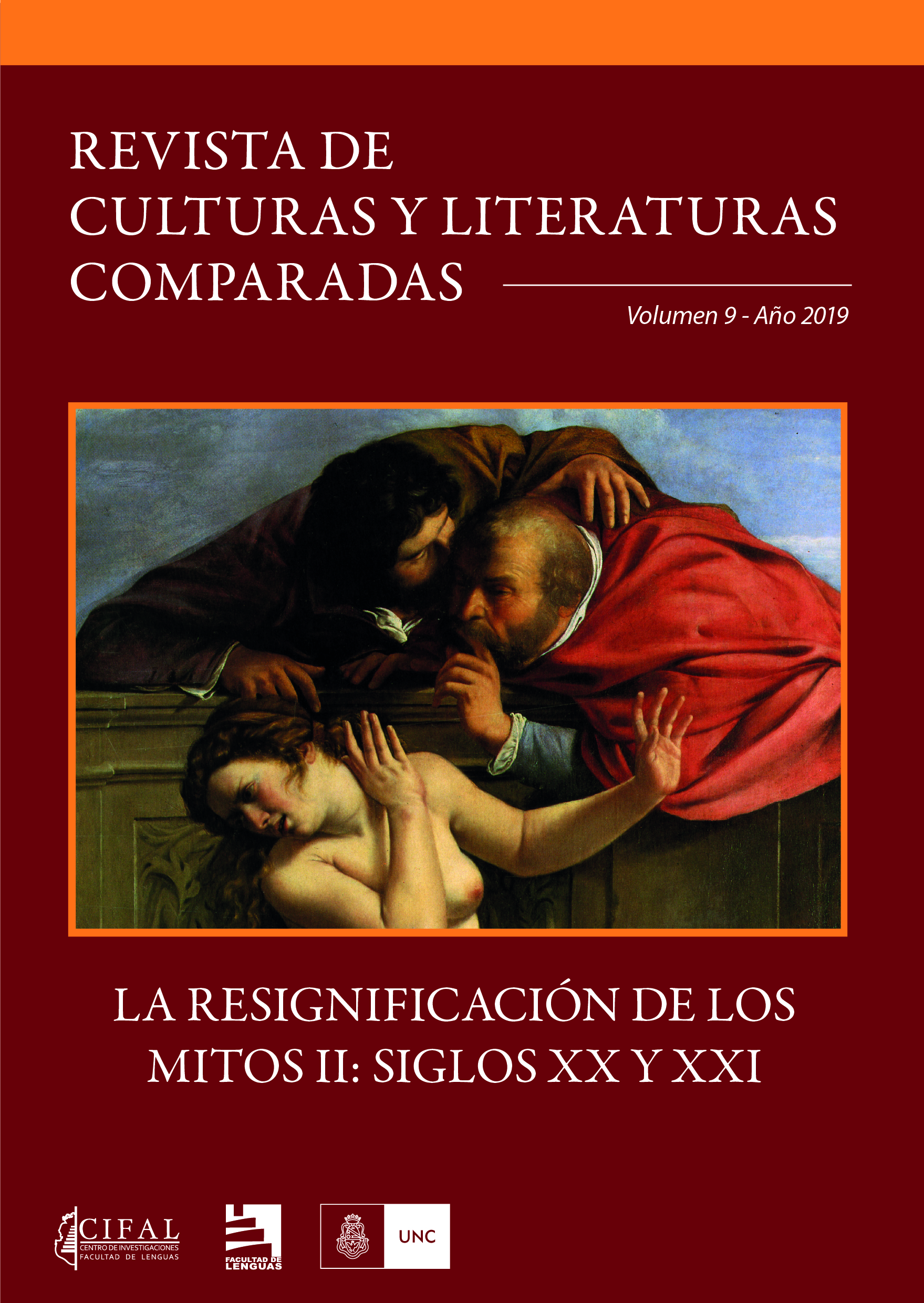Virginia Woolf: una interpretación de Antígona, “obra maestra”, “propaganda antifascista” y algo más
Keywords:
Virginia Woolf, Antigone, feminism, pacifism, antifascismAbstract
Since an early age, Virginia Woolf sensed the need to find alternatives to the rules established by the Victorian society, which didn’t allow women to get into college. Studying and reading Greek became for her a way of resistance and rebellion. Besides she felt absolutely necessary to have a good knowledge of Greek classics for her writer’s training, she continued reading the Greeks over and over trough her whole life. Stands out in this context her relation with Sophocles’ Antigone, mentioned since her first novel, The Voyage Out, and then in her books A Room of One’s Own, Three Guineas and The Years; as well as in the essay “On Not Knowing Greek”, included in her book The Common Reader. In this work it is showed that, through her interpretation and reelaboration of Antigone’s myth, Virginia Woolf expressed her feminism (mainly as a resistance to the patriarchal system), connecting it to her pacifist and antifascist view.
Downloads
References
Black, Naomi. Virginia Woolf as Feminist. Nueva York: Cornell University Press, 2004.
Chikiar Bauer, Irene. Virginia Woolf. La vida por escrito. Buenos Aires: Taurus, 2012.
Duby, George y Michel Perrot. Historia de las mujeres. El siglo XIX. Madrid: Taurus, 1993.
Hintikka, Jaako. El viaje filosófico más largo. De Aristóteles a Virginia Woolf. Barcelona: Gedisa, 1998.
Marcus, Jane, ed. New Feminist Essays on Virginia Woolf. Lincoln: University of Nebraska Press, 1981.
McCoskey, Denise Eileen y Mary Jean Corbett. “Virginia Woolf, Richard Jeff, and the Antigone.” A Companion to Sophocles. Ed. Kirk Ormand. Wiley-Blackwell, 2012. pp. 462-476.
Oldfield, Sybil. “Virginia Woolf and Antigone-Thinking against the Current”. The South Carolina Review 29.1 (1996). pp. 45-57.
Silver, Brenda R. Virginia Woolf's Reading Notebooks. S/L: Princeton University Press, 1983.
Sófocles. Antígona. Buenos Aires: Eudeba, 1997.
Steiner, George. Antígonas. La travesía de un mito universal por la historia de Occidente. Barcelona: Gedisa, 2009.
Swanson, Diana L. “With Clear-Eyed Scrutiny: Gender, Authority, and the Narrator as Sister in Jacob's Room”. Virginia Woolf, Out of Bounds. Ed. Jessica Berman y Jane Goldman. Nueva York: Pace University Press, 2001.
Woolf, Virginia. A Passionate Apprentice. The Early Journals 1897-1909. Ed. Mitchell A. Leaska. Estados Unidos: Harcourt, 1992.
---. El lector común. Barcelona: Lumen, 2009.
---. Los años. Barcelona: Lumen, 2009.
---. The Diary of Virginia Woolf, Volume five: 1936-1941. Ed. Anne Olivier Bell. Estados Unidos: Harcourt, 1985.
---. The Letters of Virginia Woolf, Volume One: 1888-1912. Ed. Nigel Nicolson y Joanne Trautmann. Estados Unidos: Harcourt, 1977.
---. The Selected Works of Virginia Woolf. Londres: Wordsworth, 2007.
---. The Years. Estados Unidos: Harcourt, 2008.
---. Tres guineas. España: Lumen, 1999.
Published
How to Cite
Issue
Section
License

This work is licensed under a Creative Commons Attribution-NonCommercial-NoDerivatives 4.0 International License.
Aquellos/as autores/as que tengan publicaciones con esta revista, aceptan los términos siguientes:
a) Los/as autores/as conservarán sus derechos de autor y garantizarán a la revista el derecho de primera publicación de su obra, el cual estará simultáneamente sujeto a la Licencia de reconocimiento de Creative Commons.
b) La cesión de derechos no exclusivos implica que la publicación de los artículos en la presente revista no quita la posibilidad o el derecho al autor/a de publicar su obra de manera posterior en otras revistas u órganos editoriales y la autorización por parte de los/as autores/as para que el trabajo sea depositado en los repositorios institucionales, tales como el Portal de Revistas de la Universidad Nacional de Córdoba.



